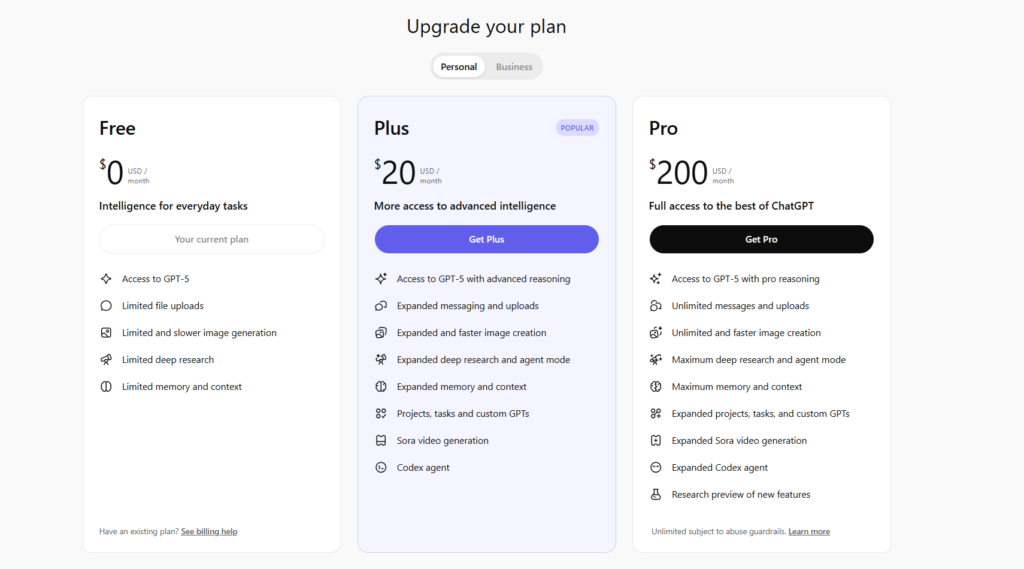
AI Slop in Marketing Isn’t Failure: Ketepa, NTSA, and the Messy Middle
TLDR: AI-generated marketing can misfire — or create what’s called AI slop. Ketepa Tea, NTSA, and Coca-Cola show how public feedback and iteration turn AI missteps into stronger campaigns.
February is the month of love, a season when brands lean heavily into emotion, gifting, and cultural moments. This year in Kenya, however, Valentine’s conversations went beyond flowers and chocolates. The Central Bank of Kenya cautioned against the misuse of banknotes amid the growing trend of money bouquets, highlighting how cultural moments, regulations, and public behavior intersect.
Against this backdrop, brands and public institutions turned to AI-generated images to participate in the moment. Ketepa Tea shared an AI-generated image of tea sachets arranged as a bouquet, prompting criticism around tone, timing, and authenticity.
Around the same time, the National Transport and Safety Authority (NTSA) faced backlash after publishing an AI-generated #UsalamaBarabarani image that appeared to contradict its own road safety message. In both cases, audiences quickly identified the gaps and voiced their feedback.
These moments sparked a broader conversation about AI-generated images and videos in marketing and the growing phenomenon often referred to as AI slop. More than isolated missteps, they reveal how brands are learning to use AI in public — navigating feedback, iterating in real time, and refining their approach as audiences become more AI-aware.
What is AI slop in Marketing?
AI slop refers to low-quality, obviously AI-generated content that fails authenticity tests and lacks the human oversight necessary for quality marketing. It is characterized by visual tells like distorted hands, impossible physics, nonsensical text, and, perhaps most critically, missing cultural context that make content resonate.
AI slop is not simply “bad content.” It often results from:
- Over-reliance on AI tools
- Weak or rushed prompting
- Limited human oversight
- Speed prioritized over strategy
Crucially, AI slop reflects process gaps, not proof that AI itself does not work. Many of these outputs are not failures, but early-stage experiments published too quickly.
But here’s what makes AI slop particularly problematic in 2025: today’s consumers are AI-literate. They can spot it instantly, and they expect better.
Why AI Slop Happens, Especially With Images and Video
AI slop is most visible in visual marketing for several reasons.
First, AI lacks lived context. Generative tools do not understand cultural nuance, regulation, emotion, or local realities. They work from patterns, not experience. Without human review, inconsistencies slip through.
Second, AI accelerates execution faster than judgment. What once took days of creative review can now be produced in minutes. When thinking does not keep pace with production, mistakes become public.
Third, visual content leaves no room for explanation. Audiences interpret images instantly. A single contradiction can undermine an entire message.
A Global Example: Coca-Cola’s Christmas Controversy and AI-Generated Creativity
In 2024 and 2025, Coca-Cola attempted to recreate its iconic “Holidays Are Coming” Christmas campaign using AI generation. The result? A soulless recreation that lost all the warmth and nostalgia of the beloved hand-crafted original. Visible AI artifacts and uncanny valley effects prompted hashtags like #BoycottCokeAI to trend. The message from consumers was clear: when you’re a heritage brand built on emotion, AI cost-cutting feels like betrayal.
Kenyan Case Study: NTSA and the #UsalamaBarabarani Campaign
Kenya’s National Transport and Safety Authority’s campaign #Safewalking #UsalamaBarabarani (Road Safety) campaign, advocating for zebra crossing usage, offers a clear example of contextual misalignment.
One of their AI-generated image shared on social media showed both a zebra crossing and a footbridge in the same frame. The public response was immediate: “Why would anyone use a ground-level crossing when there’s a safer footbridge option?” The image undermined the entire safety message, demonstrating AI’s inability to understand contextual logic.
NTSA deleted the post, but the damage to credibility was done. Here is the next post they shared on X.
Every minute saved is not worth a life lost.
Use the footbridge, it’s there to protect you.
#SafeWalking #UsalamaBarabarani pic.twitter.com/NBsFRiLWW3— NTSA KENYA (@ntsa_kenya) February 4, 2026
Ketepa Tea: Turning AI Backlash Into Iteration
Unlike the others, Ketepa’s response became a masterclass in crisis management. Ketepa Tea’s response stands out as a positive example of how brands can move forward after criticism.
After backlash over its AI-generated sachet bouquet, Ketepa did not defend the output or disengage. Instead, the brand listened. Here is the post that received a lot of criticism online.
Ketepa wishes to remind the public that section 1 of the Love Languages Code – aka the gifting of Ketepa Tea bags in decorative and romantic bouquet displays during this month of love is an enshrined freedom that all Kenyans across all walks can engage in without fear of… pic.twitter.com/c6rmS4ZGgb
— Kenya Tea Packers (@KetepaLtd) February 3, 2026
Kenya Tea Packers followed up with a new post featuring real flowers, real tea sachets, and a human presence, accompanied by the message “From AI to real tea.”
Ilibidi tutea.
Ketepa Tea Bouquet iko official,
romantic, inabrew love live.
Mapenzi ni vitendo… na tea ni lugha yetu.#KetepaTeaBouquet#ChaiNiKetepa#BrewLove pic.twitter.com/bbdehAiMOD— Kenya Tea Packers (@KetepaLtd) February 6, 2026
This shift mattered. It showed responsiveness, humility, and an understanding that AI should support storytelling, not replace human connection.
The Messy Middle of AI in Marketing
These examples illustrate what can be described as the messy middle, the phase between experimentation and mastery.
Marketing has always evolved this way. Early social media content was awkward. Early mobile ads were intrusive. AI is no different. The difference today is visibility. AI compresses timelines and exposes learning curves publicly.
The case of Coca-Cola, Ketepa Tea, and NTSA, among others, who have boldly shared their AI-generated campaigns are example of brands that are no longer iterating behind closed doors. They are doing so in real time, with audiences actively participating in the feedback loop.
They proved that listening and adapting create more trust than getting it perfect the first time.
Each public failure trains marketers on what doesn’t work. Failed examples become case studies that refine our collective understanding of AI’s appropriate use. Community feedback improves prompt engineering industry-wide. The messy middle isn’t where brands get stuck; it’s where they build the institutional knowledge that leads to mastery.
Today’s Awakened Consumer
What makes 2026 different from even two or three years ago is audience sophistication. Some consumers can increasingly spot AI-generated content through visual tells, tonal genericness, and logical inconsistencies. More importantly, they expect better. The sentiment you see on social media isn’t “don’t use AI”, it’s “if you’re using AI, at least make it good.”
This creates what is known as the authenticity paradox: brands must use AI for efficiency and creativity, yet audiences crave human connection and genuineness. The solution is not choosing between AI and authenticity. It needs brands to use AI as a tool while keeping humans as decision-makers.
Moving From AI Slop to AI-Smart Marketing
The difference between AI slop and AI success comes down to process. Successful AI marketing follows this framework:
- Generate multiple versions using AI for speed and scale.
- Review through multi-stakeholder quality checks that include cultural consultants and brand guardians. Refine based on expert input and cultural context.
- Test with small audience segments before full rollout. Approve only after final human sign-off confirming brand alignment.
- Monitor real-time sentiment post-publication. Iterate continuously based on learnings.
The critical element? Human oversight at every stage. AI should accelerate creativity, not replace judgment.
Brands must also build internal AI governance: documented learnings, prompt libraries with proven results, brand-specific guidelines, and team training on AI literacy. Quality thresholds should be established before generation begins, not after problems arise.
Conclusion
AI slop is not the end state of AI in marketing. It is a transitional phase that reflects experimentation, learning, and adjustment.
What defines strong brands is not the absence of mistakes, but how they respond. Brands that listen, iterate, and humanize their use of AI will build stronger trust and more resilient connections with their audiences.
In marketing, progress has never been perfectly polished. With AI, the learning just happens in public and when handled well, that visibility can become a strength rather than a weakness.
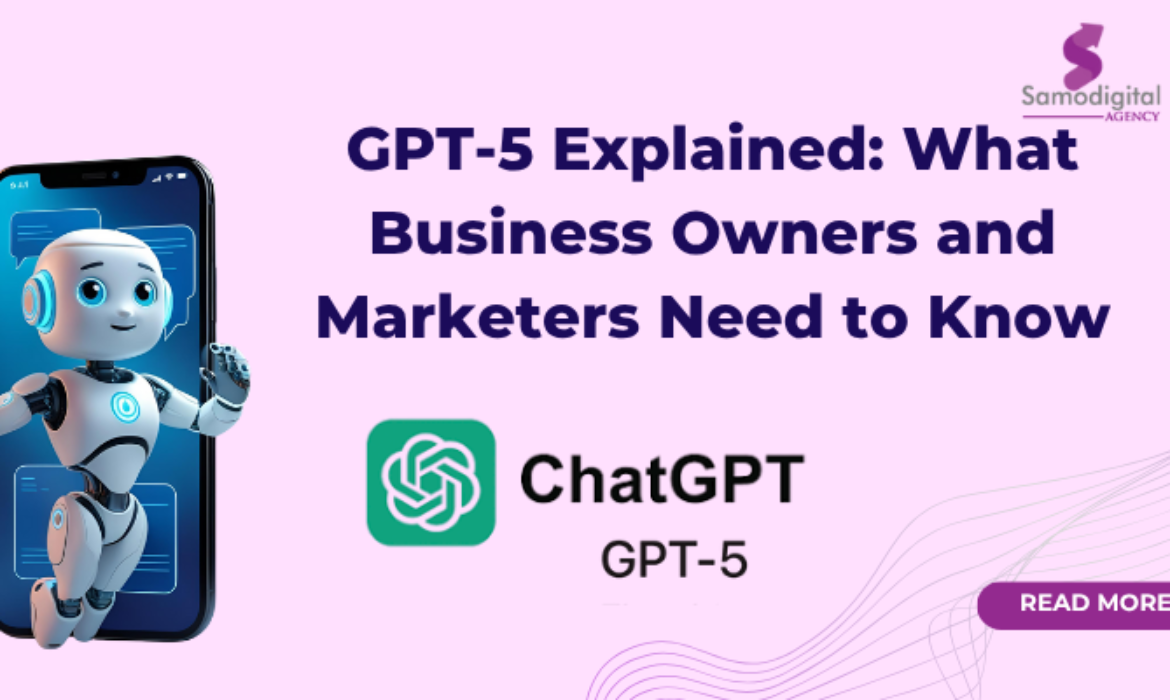
GPT-5 Explained: What Business Owners and Marketers Need to Know
OpenAI has just unveiled GPT-5, the latest and most advanced version of its AI model, and it’s already transforming the way we work, create, and communicate. Whether you are running a business, leading a marketing team, creating content, or simply trying to keep up with digital trends, GPT-5 promises faster, smarter, and more accurate results compared to previous models.
What Exactly is ChatGPT-5?
Think of GPT-5 as your new AI partner that’s sharper, more reliable, and more flexible than previous versions. According to OpenAI, GPT-5 is designed to handle complex tasks from drafting high-quality content and brainstorming creative campaigns, to analysing data and even interpreting images or charts.
Compared to GPT-4, GPT-5 has a stronger “long-memory,” meaning it can follow your train of thought over longer conversations, remember key details, and adapt its tone to match your style. It also does a much better job of reasoning through tricky problems, making it a powerful tool for marketers, business owners, and digital creators who want smart support on demand.
GPT-5 Access and Pricing Plans
OpenAI offers ChatGPT through different subscription plans tailored to your usage needs:
- Free Plan: Provides limited access to GPT-5 with daily usage caps. Ideal if you want to try out the model casually. Once you hit your limit, you might get downgraded to a smaller, lighter version like GPT-5 Mini.
- ChatGPT Plus: This paid plan gives you higher usage limits and priority access to GPT-5. It’s perfect for marketers and creators who need reliable, faster responses throughout their day.
- ChatGPT Pro: Designed for power users and businesses, Pro users get the highest usage limits and access to GPT-5 Pro — a more capable variant built for handling complex, resource-intensive tasks with ease.

ChatGPT pricing plans 2025
If you are a small business owner or a content team, these flexible plans let you pick the right balance of performance and cost for your needs. You can also explore the ChatGPT business plans
Key Features That Make GPT-5 Stand Out
Now let us look at some of the key features of ChatGPT-5:
- Sharper Reasoning
GPT-5 excels at multi-step thinking, breaking down complex questions and delivering more accurate answers. - Longer Context
It can follow your conversation or project for much longer without “forgetting” earlier points, perfect for ongoing campaigns or content strategies. - Multimodal Power
Beyond text, GPT-5 can understand and work with images, charts, and diagrams, giving you richer insights. - Smarter Adaptability
It adjusts its style and tone automatically — whether you need professional copy for a client pitch or a playful caption for social media. - Better Accuracy
Hallucinations (AI-generated wrong facts) are significantly reduced, making responses more trustworthy. - Custom Controls
You can fine-tune how detailed or concise it should be, or how much “thinking” it puts into an answer.
The Limitations to Keep in Mind
While GPT-5 is impressive, it’s not perfect. It’s still not “true AI” that understands the world the way humans do and it can make occasional mistakes, especially with niche or tricky questions. This is evident with what some of the earlier users on Reddit are saying about ChatGPT-5.
Moreover, Free-tier users will also face daily limits, and while it’s much more accurate than GPT-4, it’s not immune to errors.
GPT-4 vs GPT-5: The Big Differences
Here’s how the new version stacks up side by side:
| Feature | GPT-4 | GPT-5 |
| Reasoning Ability | Strong, but can struggle with complex multi-step problems | Much better at multi-step, complex reasoning |
| Accuracy | Good, but prone to occasional errors and hallucinations | Fewer errors, more factually reliable |
| Context Memory | Handles shorter conversations, limited long-term recall | Maintains context over much longer exchanges |
| Content Length | Up to ~100,000 tokens | Supports up to ~400,000 tokens or more |
| Pricing | Higher token costs, less cost-efficient | More cost-effective with flexible pricing plans |
| Adaptability | Can switch styles but may need prompts | Smooth and natural tone/style adaptation |
| Multimodal Support | Basic image and text handling (GPT-4o) | Advanced multimodal inputs (text, images, charts, audio, video) |
| Safety & Honesty | Occasional sycophancy and overconfident answers | More honest, transparent, and safer responses |
Why This Matters for You
If you run a business, create content, or work in digital marketing, GPT-5 can save you time, sharpen your campaigns, and even spark ideas you might not have considered. At Samodigital Agency, we are already exploring ways to use GPT-5 for smarter automation, content creation, customer engagement, and market analysis.
The bottom line? GPT-5 is not just another tech upgrade. It is a productivity boost, a creativity partner, and a competitive edge rolled into one.
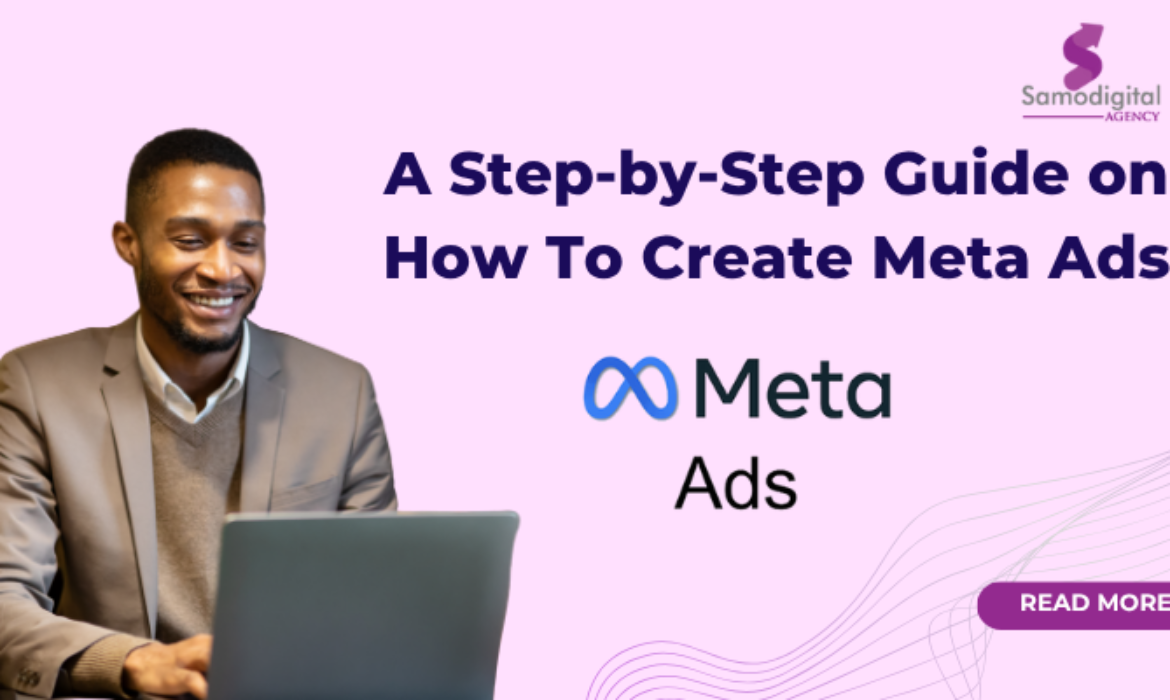
How to Run Effective Facebook and Instagram Ad Campaigns: A Step-by-Step Guide
How to Run campaigns on Facebook and Instagram?
I am sure you have come across sponsored posts on Instagram or Facebook, and you are wondering how you can run ads for your business, organization or personal brand.
Well, Meta’s advertising platform, which includes both Facebook and Instagram, provides businesses with an unparalleled opportunity to reach and engage their target audience. However, running successful campaigns requires a strategic approach, precise targeting, and continuous optimization.
This guide walks you through the essential steps on how to run campaigns on Facebook and Instagram.
1. Set Up Meta Business Manager
Before launching your ads, the first step is to set up Meta Business Manager, a centralized platform that allows businesses to manage ad accounts, pages, and permissions. Start by creating a Meta Business Manager account. This tool helps you manage your Facebook Pages, Instagram account, ad accounts, and team roles—all from one place.
Here’s what to do:
- Link your Facebook and Instagram pages.
- Add or create your ad account.
- Assign access to team members.
- Add your preferred payment method under Billing.
A proper setup avoids interruptions and keeps your campaigns organized.
2. Choose the Right Campaign Objective
Meta offers a range of advertising objectives designed to align with specific business goals. Selecting the right objective is crucial, as it dictates how the platform optimizes ad delivery.
Businesses looking to increase brand awareness should opt for the reach or brand Awareness objectives, while those seeking engagement and website traffic should choose Traffic or Engagement objectives. You can read more on How to choose the right ad objective in Meta Ads Manager
For direct sales and lead generation, Conversion-based objectives work best. Meta Ads Manager offers a variety of objectives based on your marketing goal. Your selected objective tells Meta how to optimize your campaign.
Choose from:
- Awareness: Reach, Brand Awareness
- Consideration: Traffic, Engagement, Video Views, Messages
- Conversions: Leads, Sales, Website Purchases
Example: Want more sign-ups? Choose “Leads.” Promoting a blog post? Go with “Traffic.”
3. Implementing Meta Pixel for Tracking
One of the most powerful tools available to advertisers is the Meta Pixel, a piece of code that tracks user interactions on your website. To install the Pixel, navigate to the Events Manager.
If you have a website, the Meta Pixel is essential. It’s a tracking tool that helps you measure performance and retarget users who visit your site.
To install the Pixel:
- Go to Events Manager.
- Click “Connect Data Sources” → Web → Meta Pixel.
- Name your Pixel and copy the code.
- Paste it into your site’s <head> section—or use integrations like Shopify or WordPress.
This enables better ad optimization and conversion tracking.
Platforms like Shopify and WooCommerce offer built-in integrations for easy setup. The Pixel enables businesses to track conversions, retarget visitors, and gather valuable insights into audience behavior. Ensuring proper Pixel setup allows for more accurate performance measurement and improved ad optimization.
4. Target the Right Audience
Reaching the right people is key to maximizing return on investment. Meta’s advertising platform offers robust targeting options, including Custom Audiences, Lookalike Audiences, and Detailed Targeting. Custom Audiences allow businesses to retarget website visitors, upload customer email lists, and engage with users who have interacted with their content.
Lookalike Audiences enable businesses to reach new potential customers who share characteristics with existing customers. Detailed Targeting refines audience selection based on demographics, interests, and behaviors, helping businesses connect with those most likely to convert.
5. Select Ad Placements for Maximum Impact
Meta provides multiple placement options, including Facebook Feed, Instagram Stories, and the Audience Network. Beginners may benefit from Automatic Placements, which let Meta optimize ad delivery across different platforms.
However, Manual Placements allow advertisers to tailor their strategy by selecting specific placements that align with their goals.
Instagram Stories work best with engaging vertical videos, while carousel ads in the Facebook Feed are effective for showcasing multiple products. Choosing the right placement ensures better engagement and improved performance.
6. Craft Engaging Ad Creatives and Copy
Compelling visuals and persuasive copy are at the heart of successful ad campaigns. High-quality images and videos that are optimized for mobile viewing perform best. When using video ads, it’s essential to capture attention within the first few seconds and include captions for viewers who watch without sound.
Copy should focus on the benefits of the product or service, use clear and concise language, and include a strong call-to-action (CTA) such as “Shop Now” or “Sign Up.” Running A/B tests on different creatives and headlines helps determine what resonates most with the audience.
6 Tips for winning ad creatives:
- High-Quality Visuals: Use sharp, clear, and high-resolution images or videos.
- Grab Attention Quickly: Hook your audience in the first 3 seconds and include captions.
- Keep it Short: Keep copy short, benefit-focused, and action-oriented.
- Include Strong CTA: Include a strong CTA (e.g., “Shop Now,” “Book Today”).
- Incorporate Branding Subtly: Include your logo and brand colors clearly but without overwhelming the creative.
- Test Different Copy Variations: Experiment with different headlines, primary text, and descriptions.
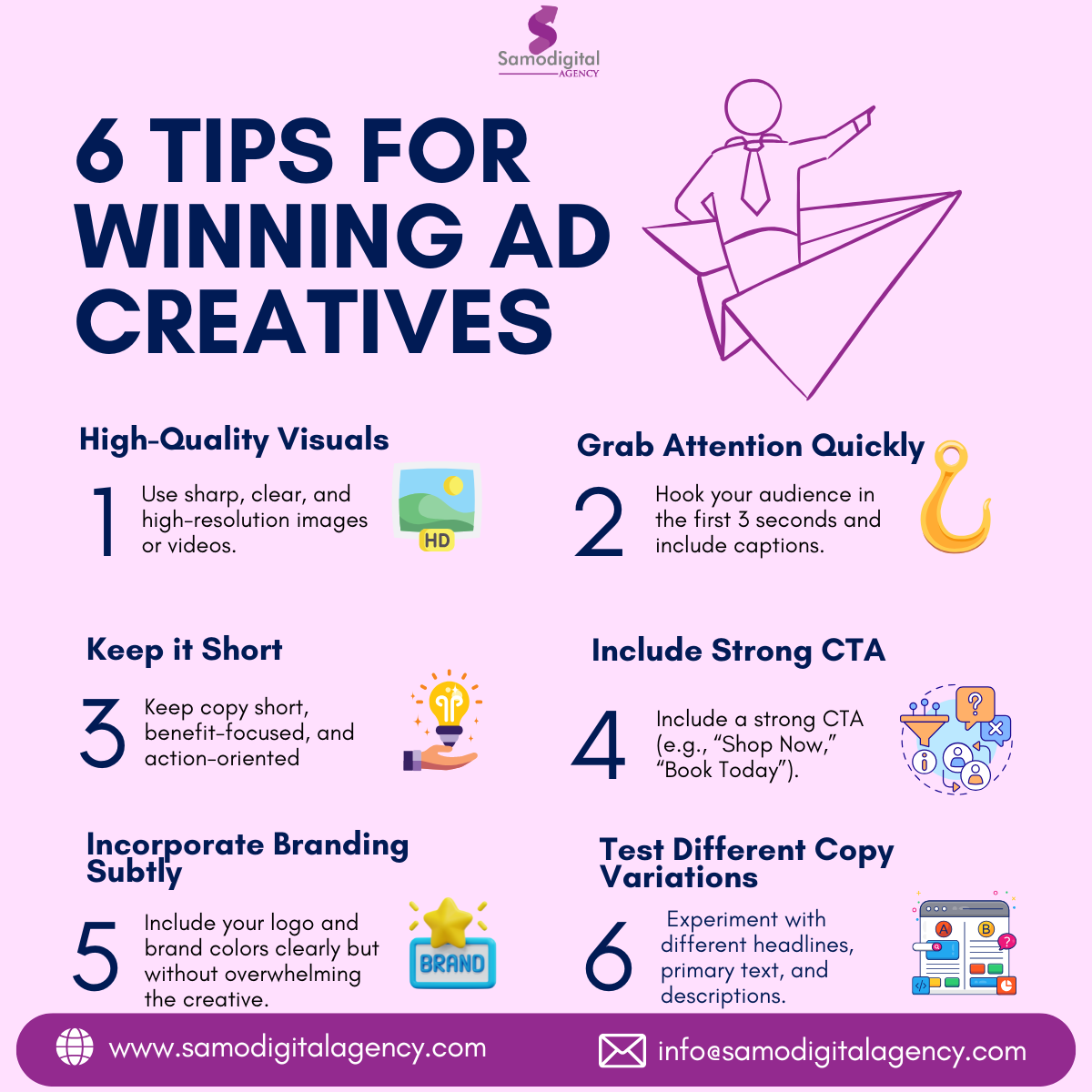
7. Set Up a Budget and Bidding Strategy
How do you want to spend on your ads? Budgeting plays a crucial role in campaign success. You can choose between a daily budget, which sets a consistent daily spend, or a lifetime budget, which allocates a total spend over a fixed campaign duration.
Meta’s bidding strategies include Lowest Cost, Cost Cap, and Bid Cap, each serving different objectives. If you are new to paid advertising, starting with a small budget allows for testing and optimization before scaling up. Analyzing performance metrics helps determine where to allocate more budget for the best results.
8. Monitor, Analyze, and Optimize Performance
Once your ad is live, go back regularly to track its performance in Meta Ads Manager.
Key metrics to monitor:
- CTR (Click-Through Rate)
- CPC (Cost Per Click)
- Conversions and Leads
- ROAS (Return on Ad Spend)
Always pause underperforming ads, reallocate budget to strong performers, and keep testing new creatives. Meta’s breakdown reports let you dig into which placements, age groups, or devices are working best.
Final Thoughts
Running effective Facebook and Instagram ad campaigns requires a blend of strategic planning, audience targeting, compelling creatives, and continuous optimization. Staying updated with Meta’s evolving ad policies and experimenting with different strategies ensures long-term success. By following these steps, businesses can harness the full potential of social media advertising to drive growth and achieve their marketing objectives.
You can email us via info@samodigialagency.com to book a free strategy call today and we can help you run and set up Meta Ads

SEO in the Gemini Era: How Google’s AI Updates Impact Search Optimization
At the just concluded Google I/O 2024, Google announced expanded AI features for Google Search. How will this impact search engine optimization? Google has been making changes to Google search to improve how users find information in the search results.
The generative AI has even accelerated the improvement since the introduction of Gemini and the search lab’s search generative experience.
Here are some of the updates coming to Google Search in the Gemini Era
Google Search is introducing a new feature called AI Overviews.
AI overviews are summaries of search results that are designed to give users a quick overview of a topic without them having to click on multiple links. The feature has been tested in Search Labs, and users liked that they could get a quick summary and then links to learn more if they wanted. Google is rolling out AI Overviews to everyone in the US this week and expects to bring them to over a billion people by the end of the year.
Ability to Customize AI Overviews
Google Search will soon let you customize AI Overviews. You’ll be able to choose to simplify the language for easier understanding or get a more detailed breakdown of the topic
Search is getting smarter!
You can now ask complex questions in one go, thanks to a new AI model called Gemini. This means you can include all the details you want in your search, like location, criteria, and comparisons.
Google gives an example “For example, maybe you’re looking for a new yoga or pilates studio, and you want one that’s popular with locals, conveniently located for your commute, and also offers a discount for new members. Soon, with just one search, you’ll be able to ask something like “find the best yoga or pilates studios in Boston and show me details on their intro offers, and walking time from Beacon Hill.”
Plan Ahead!
Search can now help you create meal plans and trip itineraries. You can search for things like “easy 5-day meal plan for a group” and get recipe suggestions. Google says you can even customize the plan by asking for vegetarian options. You can then export the plan to Docs or Gmail. This feature is currently in testing but will be expanded to include other planning categories like parties and workouts.
Get AI-organized Results Pages
They’re introducing AI-organized results pages to help you brainstorm ideas. These pages will use AI to categorize different websites under unique headings, giving you a broader perspective on your search topic. This will be available first for searches related to dining and recipes, with plans to expand to movies, music, and more.
Google Search is getting a video search upgrade!
You’ll soon be able to search using videos. This means you can record a problem, like a malfunctioning record player, and Search will use AI to understand the video and provide solutions with steps and resources. No more struggling to describe the issue with text!
What does this mean for SEO?
The SEO Impact of Generative AI in Google Search
In my view, the question of how generative AI in Google searches will affect search engine optimization (SEO) has been a major concern. Is SEO dead? While the impact is undeniable, I believe SEO will adapt rather than become obsolete.
Firstly, website traffic might be affected. Users may get some answers directly from search results, reducing clicks to websites for basic information.
Secondly, content creators like bloggers and writers will face a challenge in crafting high-quality, relevant content that stands out for AI algorithms. However, Google’s inclusion of recommended articles within the search generative experience suggests that valuable content will still be crucial.
In essence, generative AI offers easier information access for users but presents a challenge for content creation.
What are your thoughts?
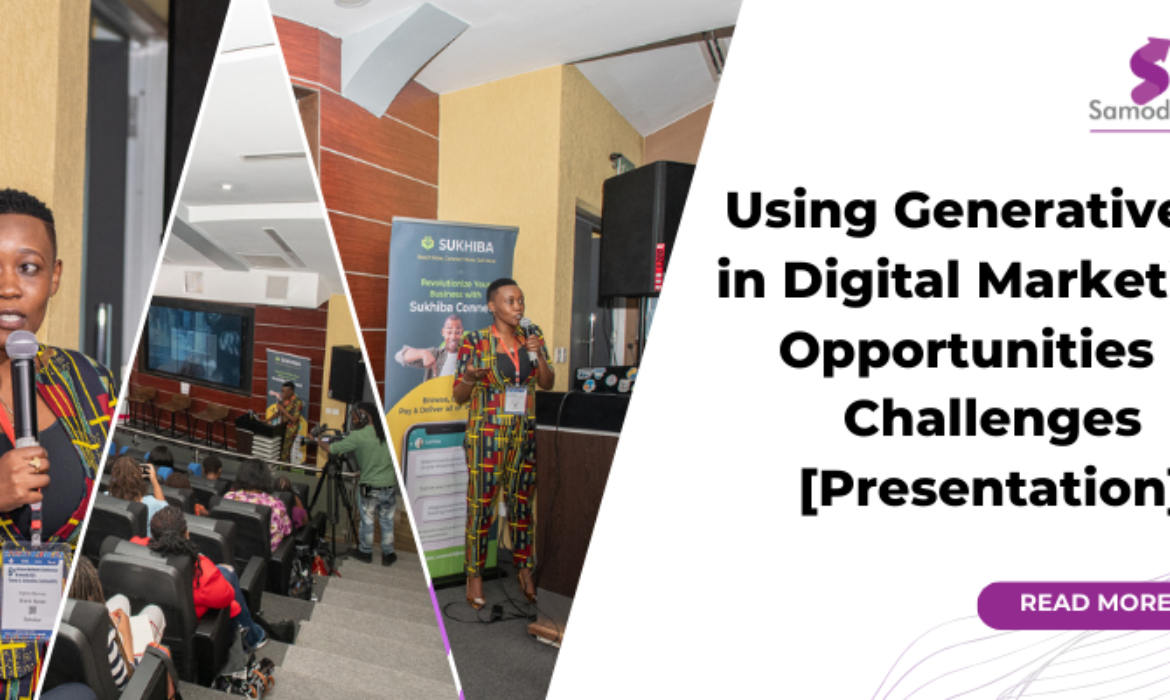
Using Generative AI in Digital Marketing: Opportunities & Challenges [Presentation]
Generative artificial intelligence became popular in 2023 thanks to the release of ChatGPT in November 2022. It has become a hot topic for marketers and businesses with each trying to see how they can weave in generative AI in their marketing strategy or day-to-day operations.
On 1st December 2023, I was privileged to give a talk on Using Generative AI in Digital Marketing at the 6th Marketers Conference and Awards 2023 in Nairobi, Kenya hosted by the Top Marketers Club.
What are the opportunities and what are the challenges for digital marketers in Kenya? In this article, I will give a summary of the points that I touched on at the conference. Here is how it started.
What is Generative AI?
Generative AI refers to deep-learning models that can generate high-quality text, images, and other content based on the data they were trained on according to IBM Research. Simply put, it includes language learning models that generate texts like ChatGPT, Bard or text-to-image such as Stable Diffusion, Midjourney, and DALL·E 2 among others.
The generative AI market is projected to reach USD 110.8 billion by 2030, and 80% of organizations have already adopted generative AI or plan to do so in the next three years.
What are the Benefits of Generative AI for Marketers in Kenya
I also touched on the benefits of generative AI. I mentioned that generative AI in marketing offers benefits such as:
- Creating high-quality visuals with fewer resources
- Enhanced content creation
- Personalized customer experiences
- Improved efficiency and productivity
- Improved customer service
- Trend forecasting and predictive analytics.
9 Generative AI Opportunities for Marketers in Kenya
Now let’s look at some of the opportunities that generative AI presents for digital marketers
-
Content Generation
Have you started using AI tools to create content? Generative AI presents opportunities for content generation, including content idea generation, converting long-form content to social media posts, creating content outlines, writing the first draft of content, writing press releases, and conducting content research and data analysis. For content generation, you can use tools like ChatGPT or Jasper AI
-
Search Engine Optimization
Also, generative AI can assist marketers with search engine optimization by conducting competitive and keyword research, creating SEO titles and meta descriptions, generating content, and editing and proofreading drafts. You can use tools like Surfer, Bard and ChatGPT to get keywords and cluster keywords.
-
Video Creation and Editing
Moreover, generative AI can be used for creating and editing videos, including explainer videos to introduce new concepts or products, promotional videos for marketing purposes, and product demos to showcase features and benefits. You can use tools like Virbo AI, Synthesia, Designs.ai and Rephrase.ai
-
Image Creation
You can use AI text-to-image platforms to create images for your social media posts, blog cover ads and even your infographics. It’s time-saving and you can play with different elements. Some of the popular text-to-image websites include Imagen, DALL-E 2, Midjourney and Stable Diffusion
-
Voice Generation
Voice generation using AI allows marketers to create unique audio content with customized brand voices for advertisements and marketing campaigns. It also enables businesses to develop AI-generated voice-overs for commercials, podcasts, and interactive advertisements, as well as realistic voice-overs for animations and video games. Examples of AI voice generators include Replica Studios, Lovo, and Synthesys.
-
Chatbots and Virtual Assistants
Generative AI can enhance chatbots and virtual assistants by improving natural language processing, personalizing customer interactions, automating content creation, generating insights from data, creating creative content, automating lead nurturing, analyzing sentiment, providing proactive customer service, supporting multiple languages, and continuously learning. This allows marketers to deliver personalized, engaging, and data-driven customer experiences, ultimately driving business growth and success.
-
Sentiment Analysis
ChatGPT’s natural language processing capabilities make it a powerful tool for sentiment analysis, enabling businesses to gain insights from customer feedback, reviews, and social media interactions. Marketers can harness this power to uncover customer sentiment trends, identify potential issues proactively, craft tailored customer service responses, predict future customer needs, track brand reputation, and make data-driven decisions that enhance customer experiences.
-
Hyper-Personalization
We are now used to personalization but generative AI takes personalization to a new level by predicting and generating content based on customer preferences, allowing businesses to deliver more personalized experiences that customers are more likely to engage with. This can include creating custom promotional offers, personalized shopping guides, or unique user experiences tailored to each customer.
-
Automating Process
AI tools that combine public and private AI models with CRM data are becoming increasingly popular for businesses. These tools can help businesses automate tasks, generate personalized content, and gain insights from data. They are often built on robust AI platforms, enabling them to integrate seamlessly with existing business systems. An example of this is Einstein GPT integrated into Salesforce CRM
Challenges of Using Generative AI in Marketing
Some of the challenges that come with using generative AI in marketing include
-
Hallucination
Hallucination in AI refers to the generation of outputs that may sound plausible but are either factually incorrect or unrelated to the given context. It leads to misinformation and disinformation and users may lose trust in the
-
Copyright infringement
Also, generative AI models can be trained on copyrighted data without permission, generating outputs that mimic copyrighted works or creating counterfeit products.
-
Bias, Stereotypes, Discrimination
While Generative AI is powerful and versatile, can also introduce biases and stereotypes into marketing campaigns if not carefully considered and implemented.
-
Data Privacy Issues and Breaches
As you know, generative AI models often require vast amounts of personal data for training and operation, raising concerns about data collection practices and the potential for misuse of this sensitive information.
-
Ethical Issues and Regulations
Lastly, generative AI is a powerful tool with the potential to revolutionize marketing, but it also raises significant ethical concerns and data privacy challenges. To ensure responsible and ethical use of generative AI in marketing, companies must prioritize transparency, fairness, data security, and compliance with relevant regulations.
Conclusion
To conclude, generative AI is revolutionizing digital marketing globally. It allows you to generate high-quality content, personalize experiences, and automate tasks. While it is promising it has inherent challenges that a marketer needs to know such as hallucination, bias and privacy issues. Marketers must stay informed and tap into the power of generative AI


